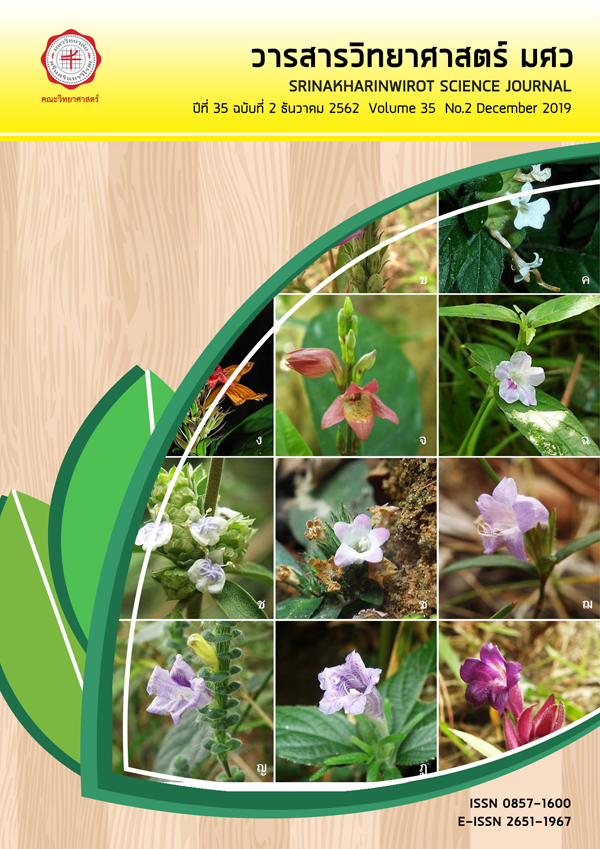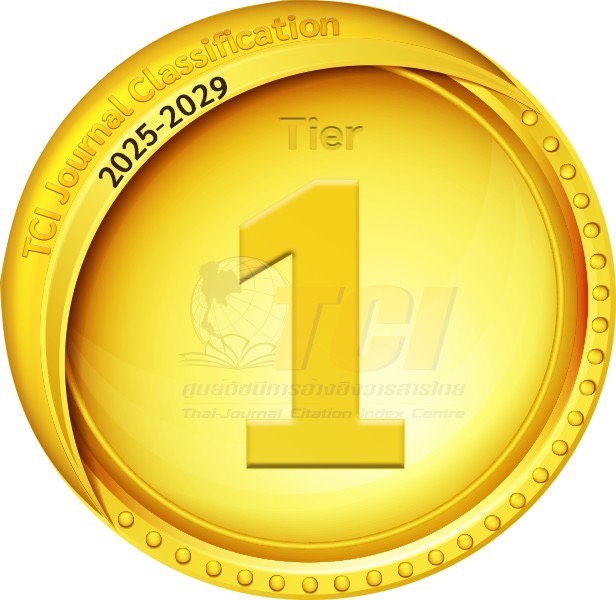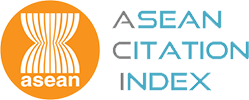Growth Mindset in Science Learning of Lower Secondary Students in Schools under the Bangkok Metropolitan Administration
Keywords:
Growth Mindset, Achievement in Science, Science Learning, Lower SecondaryAbstract
บทคัดย่อ กรอบความคิดแบบเติบโตในการเรียนวิทยาศาสตร์เป็นสิ่งสำคัญที่จะนำนักเรียนให้มีความพยายาม ในการเรียนรู้ และนำนักเรียนไปสู่ความสำเร็จในการเรียนวิทยาศาสตร์ งานวิจัยนี้จึงได้ดำเนินการสำรวจกรอบความคิดแบบเติบโตในการเรียนวิทยาศาสตร์ และศึกษาความสัมพันธ์ของกรอบความคิดแบบเติบโตกับผลสัมฤทธิ์ทางการเรียนวิชาวิทยาศาสตร์ โดยกลุ่มตัวอย่างที่ใช้ในการวิจัยครั้งนี้เป็นนักเรียนระดับมัธยมศึกษาตอนต้นจากโรงเรียนในสังกัดกรุงเทพมหานคร จำนวน 650 คน เครื่องมือที่ใช้ในการวิจัยนี้คือ แบบวัดกรอบความคิดแบบเติบโต ในการเรียนวิทยาศาสตร์ที่ดัดแปลงมาจากเครื่องมือของ Dweck โดยมีค่าความตรงรายข้อระหว่าง 0.67-1.00 และ มีค่าความเชื่อมั่นทั้งฉบับเท่ากับ .82 ผลการศึกษาพบว่า นักเรียนมัธยมศึกษาตอนต้นของโรงเรียนในสังกัดกรุงเทพมหานครมีกรอบความคิดแบบจำกัดในการเรียนวิทยาศาสตร์ จำนวน 203 คน (ร้อยละ 31.23) และมีกรอบความคิดแบบเติบโตในการเรียนวิทยาศาสตร์ จำนวน 447 คน (ร้อยละ 68.8) ซึ่งในกลุ่มนี้ส่วนใหญ่มีกรอบความคิดแบบเติบโตในระดับต่ำ จำนวน 295 คน (ร้อยละ 45.39) กรอบความคิดแบบเติบโตในระดับปานกลาง จำนวน 131 คน (ร้อยละ 20.15) และมีกรอบความคิดแบบเติบโตในระดับสูงเพียง 21 คน (ร้อยละ 3.23 ) และเมื่อทำการศึกษาความสัมพันธ์ของกรอบความคิดแบบเติบโตในการวิทยาศาสตร์กับผลสัมฤทธิ์ทางการเรียนวิชาวิทยาศาสตร์ พบว่า มีความสัมพันธ์เชิงบวกที่ระดับนัยสำคัญ .05 คำสำคัญ: กรอบความคิดแบบเติบโต ผลสัมฤทธิ์ทางการเรียนวิชาวิทยาศาสตร์ การเรียนรู้วิทยาศาสตร์ มัธยมศึกษาตอนต้น ABSTRACT Growth mindset in science learning is an important factor that leads student to have an effort and to achieve in science. This research therefore explored the growth mindset in science learning and study the relationship between growth mindset and achievement in science subject. The sample group of this research was 650 lower secondary students in the schools under the Bangkok Metropolitan Administration. The research instrument was a growth mindset in science questionnaire that was adapted from Dweck. The Index of Item Objective Congruence for each of the items was in the range 0.67-1.00 and the internal reliability was .82. The research results indicated that 203 students were identified as fixed mindset in science learning, while 447 students were identified as growth mindset in science. In the group of growth mindset, 295 students were at a lower level, 131 students were at a medium level, and just 21 students were at high level. The relationship of the variable of growth mindset with achievement in sciencemsubject was positive at a significant level of .05.Keywords: Growth Mindset, Achievement in Science, Science Learning, Lower SecondaryDownloads
Download data is not yet available.
Downloads
Published
2019-08-31
How to Cite
Limsantitham, N., Limsantitham, N., Phonpoke, N., & Dahsah1, C. (2019). Growth Mindset in Science Learning of Lower Secondary Students in Schools under the Bangkok Metropolitan Administration. Science Essence Journal, 35(2), 149–162. Retrieved from https://ejournals.swu.ac.th/index.php/sej/article/view/11315
Issue
Section
Research Article








